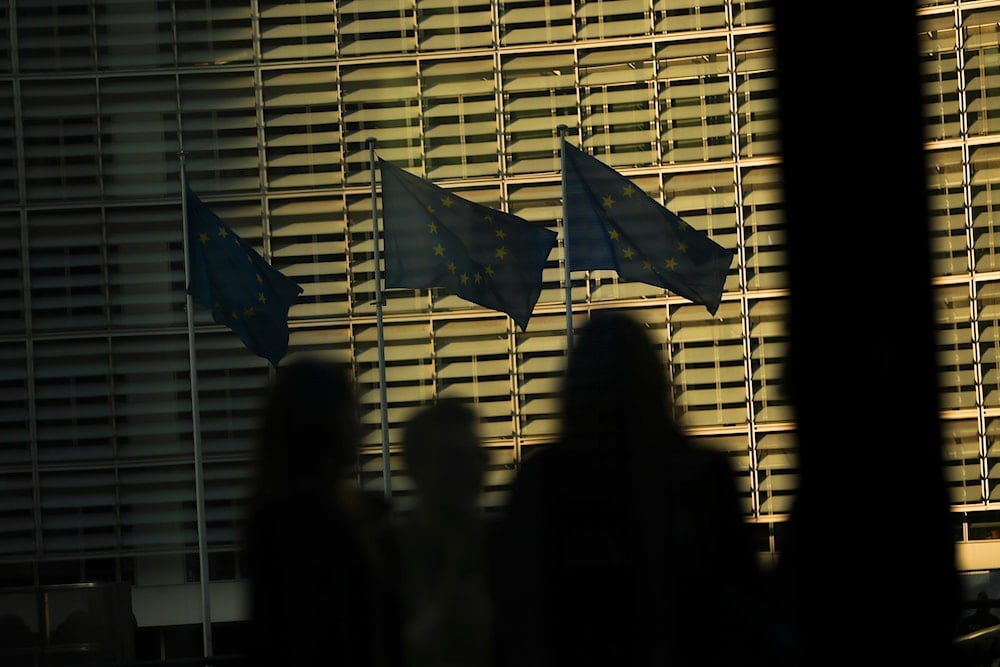No consensus yet in EU on next sanctions package against Russia
The European Union has yet to reach a consensus on the 14th sanctions package aimed at Russia.
-

Members of the media look toward EU flags flapping in the wind outside EU headquarters during an EU summit in Brussels, on March 21, 2019. (AP)
The European Union has not yet achieved unanimity regarding the new sanctions package targeting Russia. Contentious topics, such as measures against Russian liquefied natural gas (LNG) exports, remain under discussion, according to German news agency DPA.
European Commission Vice-President and Commissioner for Trade Valdis Dombrovskis stated on May 15 that the commission aimed to finalize an agreement on the package by the end of spring.
A senior European source indicated last week that EU foreign ministers would deliberate on the 14th sanctions package against Russia during a meeting scheduled in Brussels on May 27.
The EU aims to impose substantial sanctions on Russian liquefied natural gas (LNG) for the first time, according to diplomats cited by the news agency.
The European Commission is reportedly considering measures such as banning Russia from utilizing ports like Zeebrugge in Belgium for shipments of Russian LNG to third countries, as part of the proposed sanctions package.
Western countries and their allies initiated a wide-ranging sanctions campaign against Russia following its military operation in Ukraine in February 2022.
What targets did EU's 13th anti-Russia sanctions package aim at?
The EU confirmed on February 23 last year the adoption of a 13th package of sanctions against Russia, on the second anniversary of the war in Ukraine.
This set of sanctions is aimed at restricting Russia's military might, with 194 individual designations, including 106 individuals - including the Russian Defense Minister - and 88 entities affected by the package.
Over 140 companies and individuals from the Russian military-industrial complex, which manufacture missiles, drones, anti-aircraft missile systems, military vehicles, and high-tech components are targeted by the sanctions.
Electronic transformers, static converters, and inductors found inter alia in drones, alongside aluminum capacitors for military use are also banned.
Among those affected are 10 Russian companies and individuals that the EU alleges are shipping North Korean weapons to Russia, several Belarusian companies and individuals allegedly supporting the Russian Armed Forces, and a Russian logistics company and its director allegedly involved in imports of banned goods to Russia.

 2 Min Read
2 Min Read









